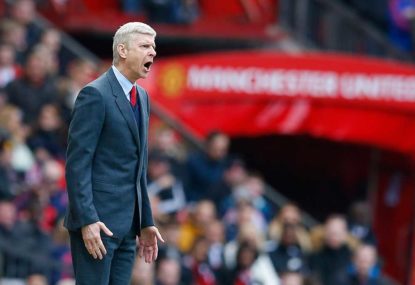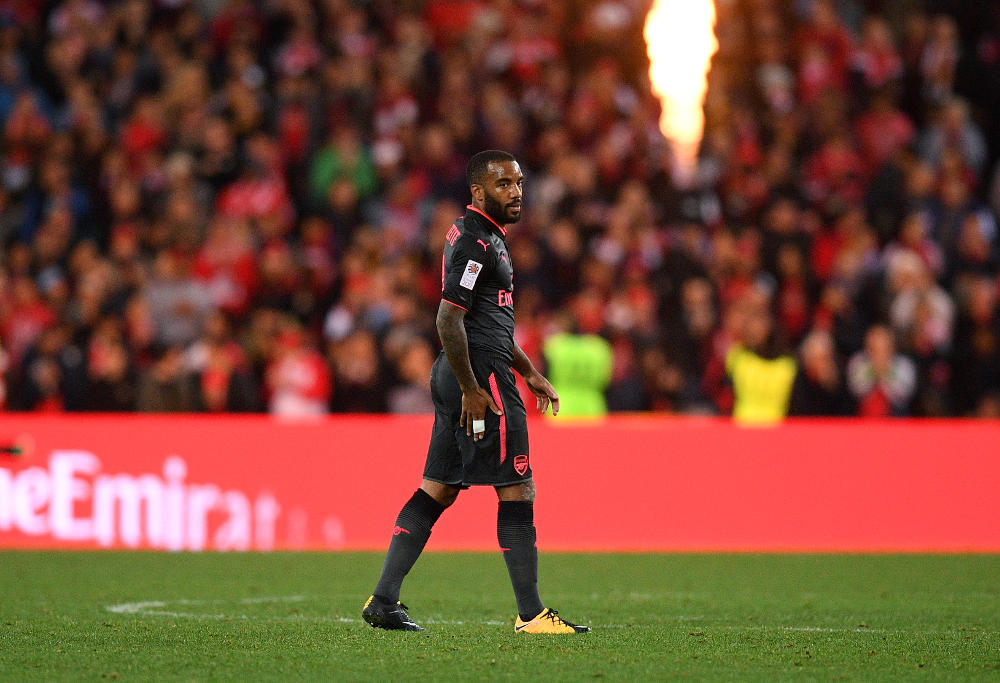Test of nerves for Arteta's Arsenal as North London Derby awaits
The past 18-24 months have been an enjoyable ride for Arsenal and their fan-base after almost a decade of turbulence. Mikel Arteta has been…

Much has been said about Arsenal Football Club in recent years, largely focussed on team and managerial performance. “Not hard enough, not consistent enough, not ruthless enough,” say the team’s critics.
In 2006, Arsenal moved to the 60,000-seat Emirates Stadium, with the promise that the club was going to compete with the heavyweights of European football.
At the time, it seemed like an inevitability. The club had just suffered a heartbreaking loss to Barcelona in the UEFA Champions League final, but with Thierry Henry and a young superstar in the making by the name of Cesc Fabregas leading the charge, it felt like Arsenal was about to grab European football by the scruff of its neck.
Instead, Arsenal went a further eight years without a single piece of silverware, until the 2014 FA Cup – a trophy they have gone on to win in three of the past four seasons.
However, that is the extent of the club’s success since its £500 million move to Ashburton Grove, which is a far cry from winning the Premier League (something it hasn’t achieved since 2004) or the UEFA Champions League (something it has never achieved) – both of which they sought to achieve over a decade ago.
In recent months, Arsenal spent over £100 million on two world-class strikers – Alexandre Lacazette and Pierre Emerick Aubameyang – and brought in Henrikh Mkhitaryan from Manchester United. However, the club is suffering its worst season since 1995.
Mesut Özil – one of this generation’s finest attacking midfielders – looks dejected. Shkodran Mustafi – a German World Cup winner who arrived after playing fantastic football at Spanish club Valencia – looks out of his depth in defence. Petr Čech – one of the greatest goalkeepers to grace the Premier League – would be up against it in the English Championship. Héctor Bellerín – who was touted as the best young right-back in world football only two years ago – cannot seem to cross a football to save his life. Granit Xhaka – let’s not even go there.

Alexandre Lacazette (AAP Image/Dan Himbrechts)
Last year, club CEO Ivan Gazidis posited to shareholders and supporters groups that Arsenal’s appointment of Borussia Dortmund’s Sven Mislintat (head of recruitment) and Barcelona’s Raul Sanllehi (head of football relations – essentially the director of football) was part of a wider “catalyst for change” in Arsenal’s rise back up the pecking order.
Since the pair arrived late last year, Arsenal signed Mkhitaryan and Aubameyang – former teammates at Dortmund – and seemed set to challenge for a top-four placing in the Premier League and a spot in the UEFA Champions League next season. However, after months of substandard performances, Arsenal is firmly in sixth position and seem likely to remain there for the rest of the season.
So why are they playing so poorly?
The club has a squad full of players who, on their day, can beat almost any team in world football. Why can’t they be consistent? How is it that Arsenal can completely dismantle a superstar Tottenham team one week, and get thrashed by perpetual relegation battlers Swansea City the next? How is it that the team can make it to a Cup final, yet not have the courage to present a meaningful challenge to their opponents?
How can that be, when Sean Dyche’s Burnley sit in seventh place, boast one of the best defensive records in English football, put in a monumental effort in almost every game they play, and do so with a shoestring budget? How can the might of Arsenal underperform so overwhelmingly, but the powers that be mutter not a sound of discontentment?
The answer is simple. Over the past decade, Arsenal Football Club has ushered in a culture of complacency.
For so long the club’s hierarchy has believed the club needn’t win trophies because it achieves Champions League football every year, and reaps the financial rewards which go along with it.
Arsenal has a beautiful stadium, world-class training facilities, and a large, wealthy supporter base who pay the highest ticket prices in world football, and as such, are the reason Arsenal receives the greatest stadium revenue in world football.
The club happily exists in the financial and cultural capital of the world, and it enjoys its reputation as a large and prestigious footballing institution.
That is the ignorant view of the egregious ownership and board of directors who have deluded themselves into thinking that their subpar governance methods are inconsequential to external forces, especially considering they circumscribe accountability and transparency to the plush inner sanctum of Arsenal’s headquarters – you know, away from the hoi polloi beneath their ivory tower who are the reason they exist there in the first place.
In reality, many season ticket holders – despite their financial support of their club – refuse to show up to games. Poor performances have resulted in noticeable patches of empty seats around the Emirates Stadium this season, which shows that people are understandably running out of patience.
This season, Arsenal’s perpetual Champions League participation came to an end for the first time in 21 years, which looks destined to continue. Erstwhile players such as Alexis Sanchez – for several years the central driving force in Arsenal’s attack – have moved to clubs which show greater potential for progress and success. Social media – having long permeated the cultural zeitgeist – has rendered Arsenal cannon fodder for mockery and pity.
These issues have been largely ignored by the club’s hierarchy when they should be treated for what they are – an indictment on the club and its governance.
[latest_videos_strip category=”football” name=”Football”]
The players look like they can’t be bothered, but it’s merely a reflection of wider cultural issues.
Arsène Wenger – manager since 1996 – has been at the club for far too long, and his tactical awareness lacks the nuance required in today’s game. His team selection in 2018 is not based on merit or match context, rather a gold-ticket system where he selects underperforming players with whom he shares a close relationship, and consigns to the bench those who challenge his authority.
However, Stan Kronke, the club’s largest shareholder, and the board of directors – consisting of English nobility and an assortment of businesspeople, bankers and lawyers – are the main driving force behind Arsenal’s stagnant culture of complacency. They play the part of business owner. They treat Arsenal as a corporation.
In many ways, Arsenal is a business and good financial governance is important, but it’s also a football club. People don’t scatter their father’s ashes at the headquarters of Citigroup, and they don’t tattoo Deloitte on their right arm as a display of undying loyalty to a corporation. Football clubs are central to a supporter’s identity and that needs to figure into the decision-making process at board level.
For years, Kroenke and his merry band have been content with top-four finishes because European football generates significant revenue. Many supporters thought the board would shake things up and replace Wenger after the club suffered its worst season in 21 years – instead, they signed him to a fresh, two-year contract worth £10 million per year. If that is how you respond to missing out on the most prestigious club competition in world football – not to mention the millions in revenue that goes along with it – then your ambition and intent is obvious.
If we are to critically analyse Arsenal’s downfall, the major shareholders and the board of directors are the biggest decision makers, and the culture of complacency that has run rampant throughout the club begins and ends with them. Only they can set forth in motion a real catalyst for change.
The two departmental appointments, in Mislintat and Sanllehi, are promising, but they are merely bandaids for bullet wounds under the current administration. The entire culture needs to be shaken up, and that includes making much-needed changes in the boardroom, the coaching room, the backroom and the dressing room. No one person is safe from scrutiny, and no one person is bigger than the club.
Loyalty and patience are virtuous traits, but when they result in perpetual underperformance and a harmful culture of complacency, then tough decisions need to be made.
Then, and only then, will Arsenal’s supposed catalyst for change give the club a chance to return to its once great standing in world football.